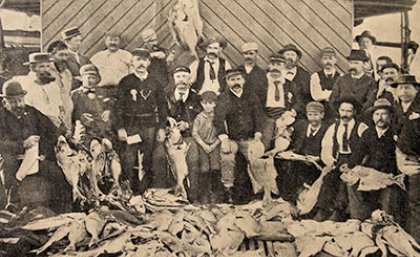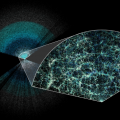
Queensland scientists delving into newspaper archives have discovered that catch rates for Queensland’s pink snapper fishery have declined almost 90 per cent since the 19th Century.
Researchers from the ARC Centre of Excellence for Coral Reef Studies at The University of Queensland and the Department of Agriculture Fisheries and Forestry examined thousands of newspaper articles dating back to 1870 to reveal the historic catch rates for the iconic Queensland fishery.
“We found that 19th Century recreational fishers would regularly catch hundreds of fish off the coast of Queensland, often in just a few hours of fishing,” ARC Centre of Excellence for Coral Reef Studies research fellow Dr Ruth Thurstan said.
Combining historical data with statistical analyses allowed the researchers to calculate catch rates – the number of fish caught per hour of fishing per day – for nearly 300 fishing trips between 1871 and 1939.
The old news articles have given researchers unparalleled insights into the history of the Queensland snapper fishery.
When the researchers compared the findings with contemporary fishing trips, they found that recent catch rates averaged just one-ninth of historical levels.
The old news articles have given researchers unparalleled insights into the history of the Queensland snapper fishery.
“When we searched through these old newspapers we were amazed by the level of detail they provided,” Dr Thurstan said.
“They give us a much better understanding of just how rich and productive this fishery used to be, as well as providing us with some fascinating insights into the development of offshore recreational fishing in Queensland.”
“Crucially, these newspaper articles place the modern-day fishery into a longer-term perspective that isn’t available using only official records.
“This helps us understand the changes that have occurred in the fishery over time, and provides an additional piece of the puzzle for those managing this fishery today,” she said.
Study co-author, ARC Centre of Excellence for Coral Reef Studies Professor John Pandolfi agreed.
“This is one of the most comprehensive perspectives on historical trends in catch rates for Australian fisheries ever compiled,” he said.
“We expect similar trends to be uncovered for other Australian fisheries.”
The research, ‘Nineteenth century narratives reveal historic catch rates for Australian snapper (Pagrus auratus)’, by Ruth H. Thurstan, Alexander B. Campbell and John M. Pandolfi, is published in the journal Fish and Fisheries. http://onlinelibrary.wiley.com/doi/10.1111/faf.12103/abstract
Images
Snapper fishers – Schnappering, T. Welsby, 1905
‘Schnappering’ magazine cover – T. Welsby, 1905
Media: Dr Ruth Thurstan: +61 (0) 450 586 263,r.thurstan@uq.edu.au, Professor John Pandolfi: + 61 (0) 7 3365 3050, j.pandolfi@uq.edu.au, ARC Centre of Excellence for Coral Reef Studies Communications Manager Eleanor Gregory, +61 (0) 428 785 895, eleanor.gregory@jcu.edu.au.











